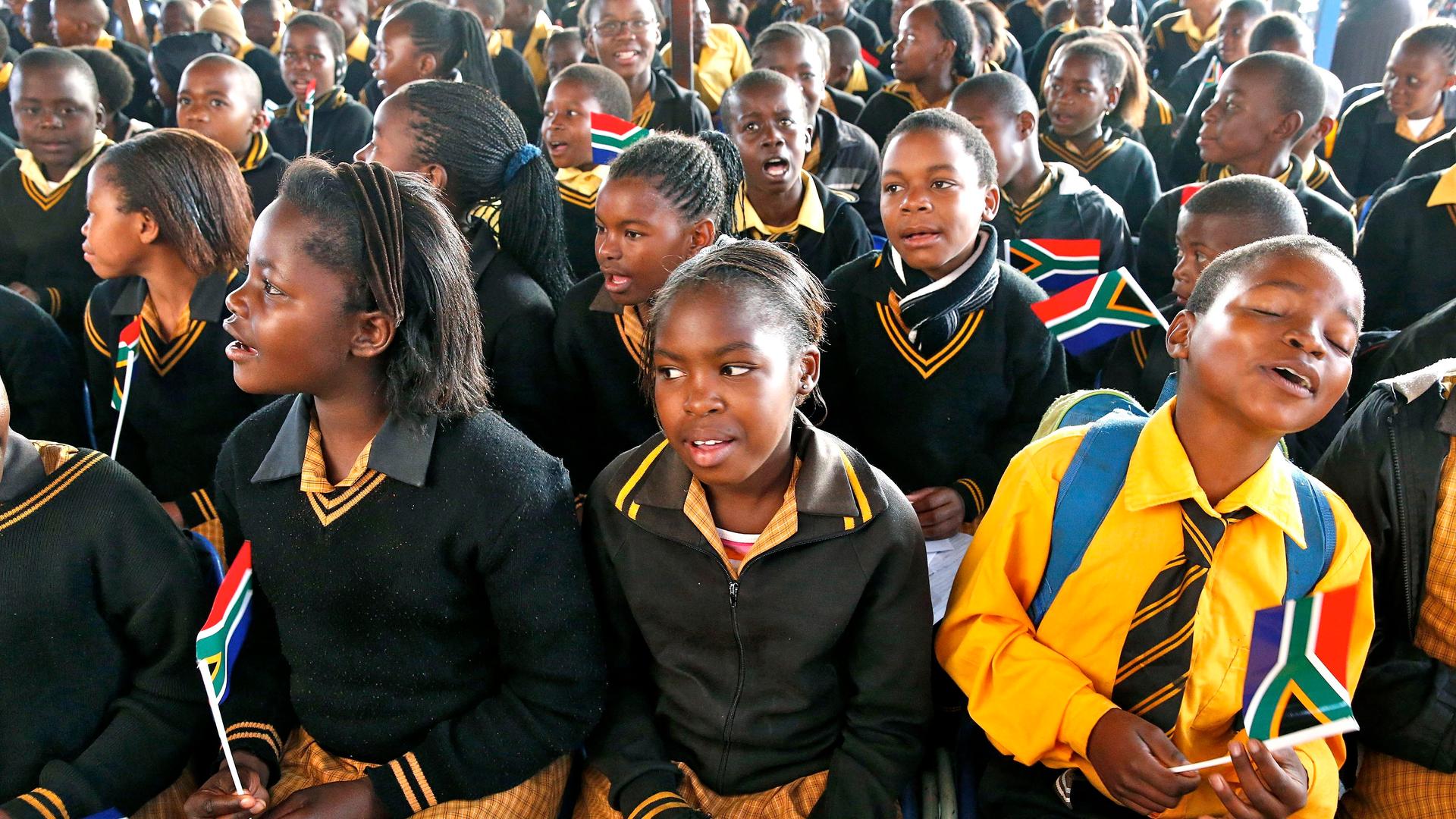From Afrikaans to Zulu, South Africa’s languages have stories to tell
Children at a township school in Atteridgevile, South Africa. In post-apartheid South Africa, children are no longer required to learn the Afrikaans language.
During apartheid, South Africa had two official languages, English and Afrikaans. Indigenous languages, like the people who spoke them, were considered inferior.
When apartheid ended, the Afrikaner minority that had ruled South Africa was willing to give up some of its power — but not its language.
"Language for the Afrikaner nationalists had been central to their identity, their being, their struggle," said South African constitutional judge Albie Sachs. "They could just about imagine conceding democracy, and could just about imagine a constitution in which black and white were equal. But if Afrikaans was downgraded: boom!"
Sachs — who was imprisoned and exiled during apartheid — helped write the post-apartheid constitution, which upgraded nine indigenous languages without reducing the status of English and Afrikaans.
"In two sentences, we had solved the basic dilemma of the language question in South Africa," said Sachs. "No language is any more important than any other language."
Government recognition of 11 languages reflects Nelson Mandela's vision of an inclusive rainbow nation. But it has also created tensions: English dominates in many spheres of business and culture, as it does elsewhere around the globe.
Afrikaans remains tainted by its association with apartheid, even as some of its younger speakers are trying to change that. Also, some middle class blacks prefer to speak English in the home, rather than Xhosa, Tswana or other indigenous languages.
South Africa has nearly seven million Afrikaans native speakers, placing it ahead of English, but behind Zulu and Xhosa.
More than 11 million South Africans grew up speaking Zulu, but few speak it as a second language, and fewer still speak it in business settings. As a result, the language is not evolving as rapidly as say, English. It can also be clunky. The words for the numerals eight and nine are horribly long, for example, so Zulu speakers often just switch to the English words. And like many indigenous languages, there aren't many Zulu words for the Internet age.
So language activist Phiwayinkosi Mbutazi has invented his own Zulu words and is hoping that his neologisms catch on. He has already dreamed up more than 500 words, such as buyafuthi (recycling), derived from the Zulu words for 'bring back' and 'again.'
You can hear Phiwayinkosi Mbutazi discuss his one-man Zulu language academy in the audio of this story, along with excerpts of linguist Mark Turin's excellent BBC documentary on the recent history of South Africa's languages. The full version of Turin's documentary is in this previous podcast.
